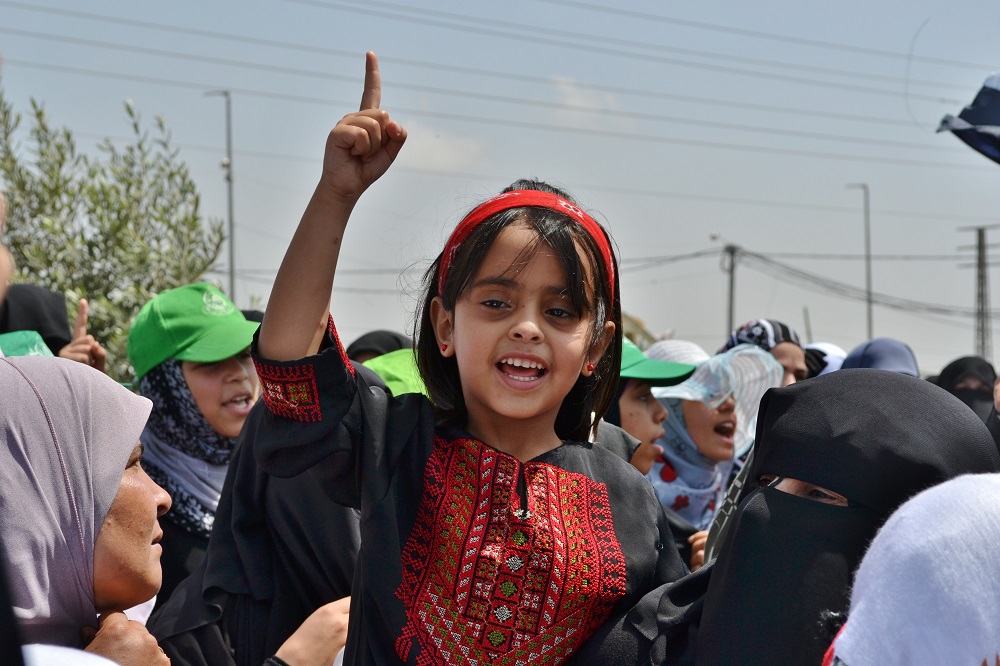-
Photo essay: Gaza joins the Global March to Jerusalem
10th June 2013 | International Solidarity Movement | Beit Hanoun, Occupied Palestine Thousands of Palestinians from across the Gaza Strip rallied by the closed Erez checkpoint on Friday, marking al-Naksa (the setback), Israel’s 1967 seizure of the Palestinian West Bank and Gaza Strip, Syria’s Golan Heights, and Sinai Peninsula, ceded to Egypt in 1982. Israel’s […]
-
Expansion of Karmel settlement prevents inhabitants of Umm Al Kheer from accessing their land
9th June 2013 | Operation Dove | Umm Al Kheer, South Hebron Hills, Occupied Palestine On Saturday June 8 an old Palestinian man from the village of Umm Al Kheer, Suleiman Aid Yameen Hadleen, was detained for more than three hours by the Israeli army while affirming his right to access his own land. In […]
-
The Fourth National BDS Conference rejects normalisation with Israel
8th June 2013 | International Solidarity Movement, Ramallah Team | Bethlehem, Occupied Palestine Beginning in the early morning, with buses coming from all over the West Bank full of eager participants, the Fourth National Boycott, Divestment and Sanctions (BDS) conference, hosted at Bethlehem University got off to an amazing start with a fully packed auditorium. […]
Action Alert An Nabi Saleh Apartheid Wall Arrests BDS Bethlehem Bil'in Cast Lead Demonstration Denial of Entry Ethnic Cleansing Farmers Gaza Global Actions Hebron House Demolition International law Israeli Army Jerusalem Live Ammunition Nablus Ni'lin Prisoner Ramallah Rubber-coated steel bullets Settlement Settlers Settler violence Tear-Gas Canister Video

